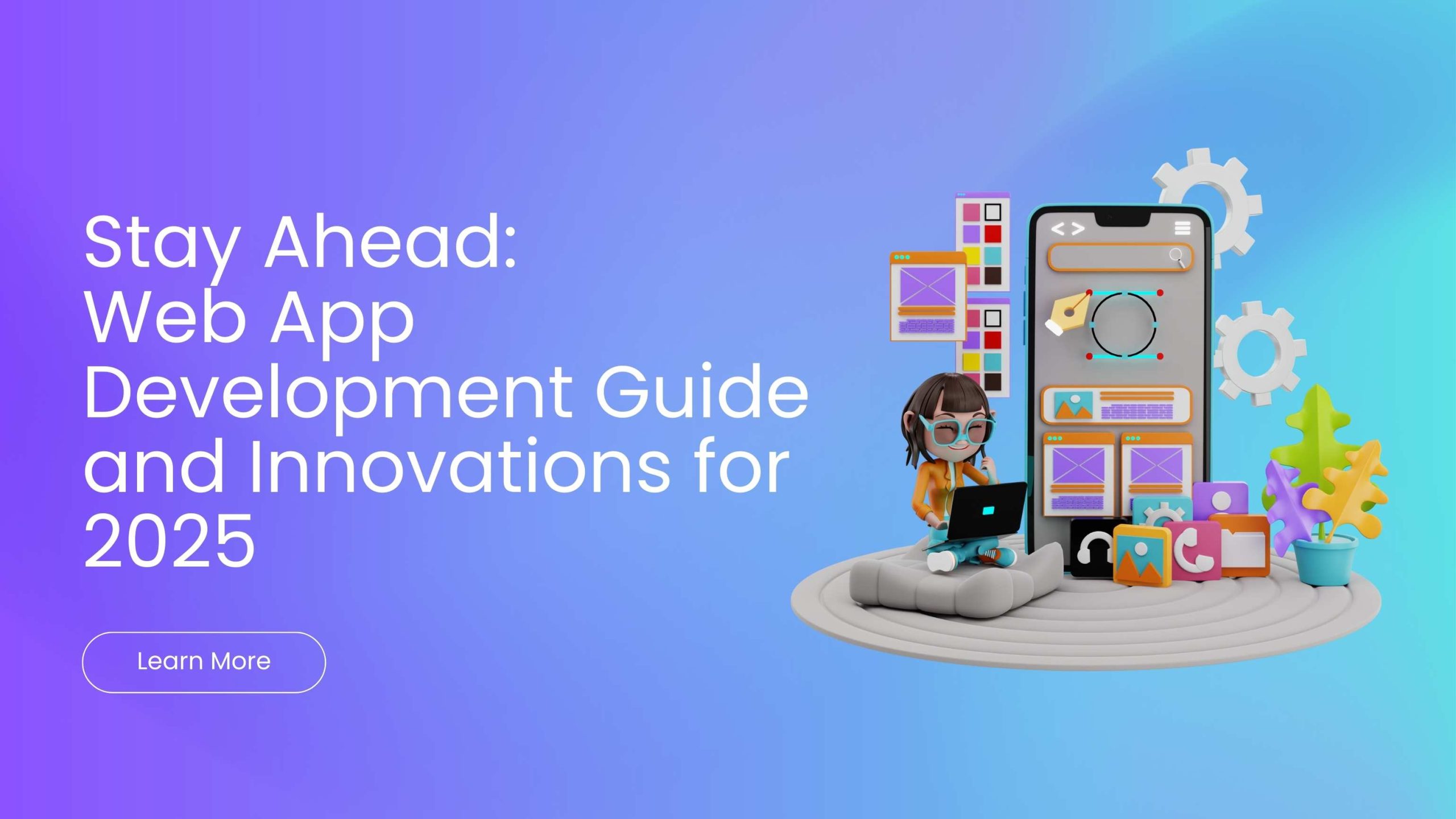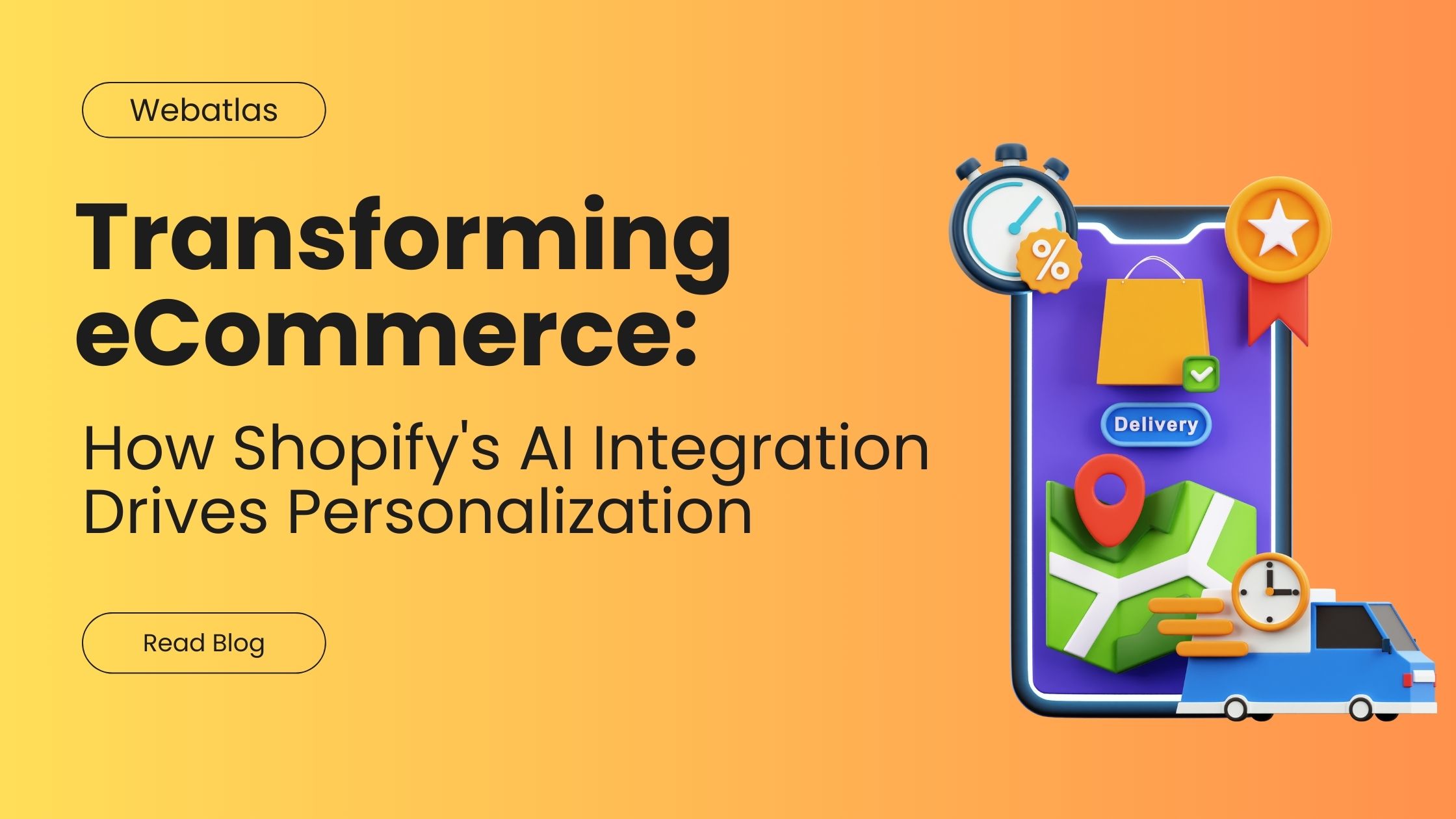2025 Web App Development Guide: Modern Tools, Frameworks, and Trends to Know

The web app development landscape is constantly evolving, and 2025 promises to bring exciting advancements. As businesses strive to provide seamless, fast, and scalable solutions, staying updated with modern tools, frameworks, and trends is no longer optional—it’s a necessity.
Whether you’re a developer, business owner, or CTO, understanding the latest innovations in web app development can set you apart. In this guide, we’ll explore the essential tools, frameworks, and trends shaping the future of web app development. Plus, we’ll highlight how Webatlas, a leading mobile app development company, can help you stay ahead of the curve.
1. The Rise of Progressive Web Apps (PWAs)
Progressive Web Apps (PWAs) are no longer just a trend—they are becoming the standard. PWAs combine the best of web and mobile applications, offering:
- Offline functionality.
- Faster load times.
- Improved user engagement with push notifications.
- Cross-platform compatibility.
Why PWAs Matter in 2025:
As mobile users continue to dominate internet traffic, businesses will prioritize PWAs to deliver app-like experiences without the need for downloads. Companies like Pinterest and Twitter have already witnessed significant engagement boosts by adopting PWAs.
Top Tools for PWAs:
- Workbox: A library for building service workers.
- Lighthouse: To audit and optimize your PWA performance.
- Vue.js and React: Popular frameworks to build PWA frontends.
2. Modern Web App Frameworks to Watch
Frameworks remain the backbone of web app development, helping developers build scalable, maintainable, and high-performance applications. Here are some frameworks that will dominate 2025:
React.js
- Why it’s popular: React remains a top choice due to its reusable components and virtual DOM, making web apps faster and easier to develop.
Vue.js
- Why it’s growing: Vue offers simplicity and flexibility, ideal for businesses seeking a lightweight and easy-to-integrate solution.
Angular
- Why it’s reliable: Backed by Google, Angular is perfect for building enterprise-grade, large-scale web applications.
Svelte
- The newcomer to watch: Unlike other frameworks, Svelte shifts the work to compile time, ensuring blazingly fast apps with less runtime overhead.
Framework Comparison Tip: Choose React or Vue for flexibility, Angular for robustness, and Svelte for performance.
3. AI and Machine Learning Integration
AI and machine learning (ML) will continue to play a huge role in web app development in 2025. Businesses are leveraging AI to enhance user experiences, automate processes, and provide personalized solutions.
Key Applications in Web Apps:
- Chatbots for customer support.
- AI-driven recommendation engines (like Amazon and Netflix).
- Data analytics for customer insights.
Tools to Integrate AI in Web Apps:
- TensorFlow.js: Run ML models directly in the browser.
- Dialogflow: Build conversational interfaces for web apps.
- IBM Watson API: Advanced AI tools for web applications.
4. Serverless Architecture for Web Applications
Serverless architecture eliminates the need to manage servers manually, offering a pay-as-you-go model that reduces costs and simplifies scalability. Businesses will increasingly adopt serverless web apps in 2025.
Benefits of Serverless Architecture:
- Faster deployment.
- Auto-scaling capabilities to handle high traffic.
- Cost-efficient development with reduced infrastructure overhead.
Popular Serverless Tools:
- AWS Lambda
- Google Cloud Functions
- Azure Functions
5. Web App Security Trends
With growing cyber threats, web app security will be a top priority in 2025. Businesses will need robust security measures to protect user data and comply with regulations like GDPR.
Key Security Practices for 2025:
- Implementing HTTPS and SSL certificates.
- Adopting OAuth 2.0 for secure authorization.
- Regular software testing services to identify vulnerabilities.
- Integrating tools like Content Security Policy (CSP) and web application firewalls (WAF).
6. The Importance of Software Testing Services
Software testing ensures that web applications perform optimally and remain bug-free. As applications grow in complexity, automated testing and CI/CD pipelines will become the standard.
Top Software Testing Practices for 2025:
- Unit testing, integration testing, and end-to-end testing.
- Adopting tools like Selenium, Jest, and Cypress.
- Leveraging AI for automated testing to reduce manual effort.
By ensuring thorough testing, businesses can deliver high-quality applications that offer superior user experiences.
Webatlas: Your Trusted Partner for Web App Development
When it comes to building future-ready web applications, Webatlas stands out as a leader in the industry. As an experienced mobile app development company with expertise in web solutions, Webatlas has successfully helped businesses create scalable, secure, and high-performance applications.
Why Choose Webatlas?
- Expertise in Modern Frameworks: From React to Angular, Webatlas developers are well-versed in the latest frameworks and technologies.
- End-to-End Solutions: From ideation to deployment, Webatlas provides comprehensive web app development services tailored to your business needs.
- Robust Software Testing Services: Webatlas ensures that every application undergoes thorough testing to deliver flawless performance.
- Focus on Scalability and Security: With cutting-edge tools and best practices, Webatlas builds web apps that scale effortlessly and remain secure.
Industries Served:
Whether you’re in e-commerce, healthcare, fintech, or education, Webatlas has a proven track record of delivering results-driven web app solutions.
Partnering with Webatlas means building web applications that not only meet today’s demands but are also ready for the future.
Final Thoughts
Web app development in 2025 will be driven by modern tools, innovative frameworks, and groundbreaking trends. Whether it’s Progressive Web Apps, AI integration, or serverless architecture, businesses must adapt to remain competitive.
By partnering with a leading mobile app development company like Webatlas, you gain access to a team of experts who deliver cutting-edge web solutions and software testing services to ensure performance, scalability, and security.
Are you ready to build future-ready web apps? Get in touch with Webatlas today to turn your vision into reality!
FAQs
1. What is the best framework for web app development in 2025?
React.js, Vue.js, Angular, and Svelte are top frameworks to consider, depending on project requirements and scalability needs.
2. What are Progressive Web Apps (PWAs), and why are they important?
PWAs offer app-like experiences on the web, combining speed, offline functionality, and cross-platform compatibility, making them ideal for businesses.
3. How can Webatlas help with web app development?
Webatlas specializes in building modern, secure, and scalable web applications with expertise in frameworks, software testing services, and end-to-end solutions.
4. What trends will dominate web app development in 2025?
Key trends include PWAs, AI and ML integration, serverless architecture, security enhancements, and automation in software testing.
5. How does software testing improve web app quality?
Software testing identifies bugs, ensures performance optimization, and guarantees a seamless user experience across devices and browsers.
Recent Post
Let's talk about your project, or just come and say hello!
Webatlas Technologies is the fastest growing web and mobile app development company



